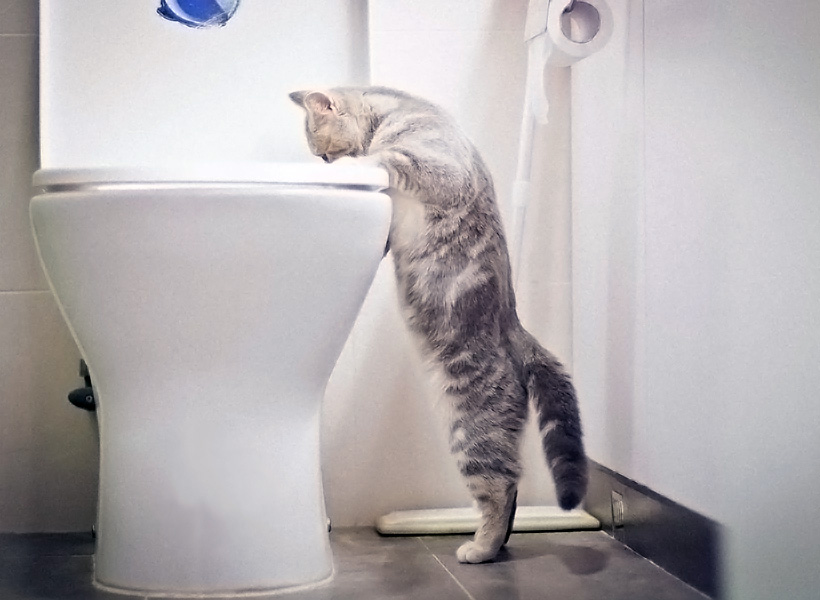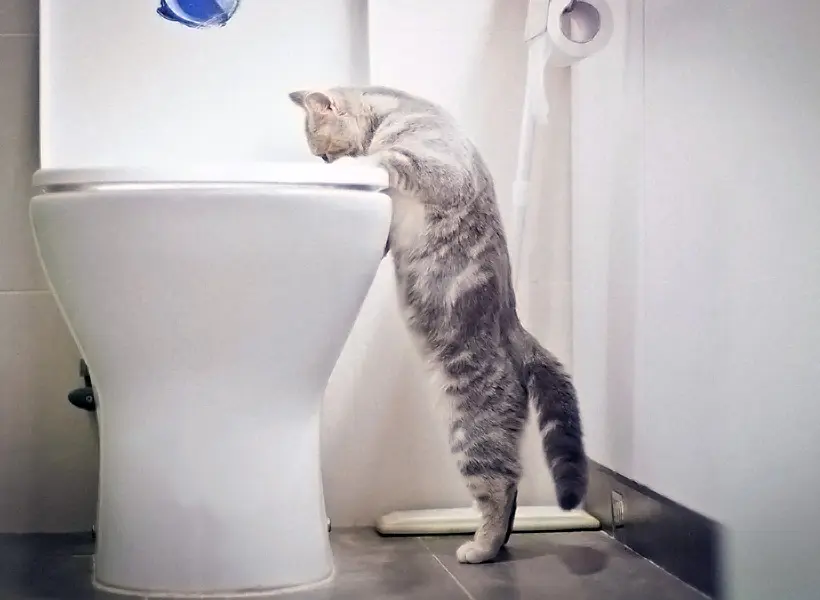Reasons Flushing Cat Poop Down Your Toilet Is Harmful - Suggestions for Proper Disposal
Reasons Flushing Cat Poop Down Your Toilet Is Harmful - Suggestions for Proper Disposal
Blog Article
This article down below on the subject of How to Dispose of Cat Poop and Litter Without Plastic Bags is without a doubt entertaining. You should check it out.

Introduction
As feline proprietors, it's important to be mindful of how we dispose of our feline pals' waste. While it may appear practical to purge feline poop down the commode, this method can have destructive repercussions for both the environment and human wellness.
Alternatives to Flushing
The good news is, there are much safer and extra responsible means to throw away feline poop. Take into consideration the adhering to alternatives:
1. Scoop and Dispose in Trash
The most typical technique of disposing of cat poop is to scoop it right into a naturally degradable bag and throw it in the garbage. Make certain to utilize a dedicated trash scoop and dispose of the waste without delay.
2. Usage Biodegradable Litter
Select naturally degradable cat litter made from materials such as corn or wheat. These litters are eco-friendly and can be securely thrown away in the garbage.
3. Bury in the Yard
If you have a yard, take into consideration burying pet cat waste in a marked area far from veggie gardens and water sources. Be sure to dig deep sufficient to stop contamination of groundwater.
4. Mount a Pet Waste Disposal System
Invest in a pet waste disposal system particularly created for pet cat waste. These systems use enzymes to break down the waste, decreasing smell and environmental impact.
Health and wellness Risks
In addition to environmental issues, flushing feline waste can additionally position health threats to humans. Cat feces may include Toxoplasma gondii, a parasite that can create toxoplasmosis-- a possibly serious health problem, especially for expectant ladies and people with weakened body immune systems.
Environmental Impact
Purging feline poop presents unsafe microorganisms and bloodsuckers into the water system, posturing a substantial danger to marine environments. These impurities can negatively affect marine life and concession water quality.
Final thought
Responsible pet possession extends beyond providing food and shelter-- it likewise entails correct waste management. By avoiding flushing feline poop down the bathroom and going with alternate disposal methods, we can minimize our ecological footprint and secure human wellness.
Why Can’t I Flush Cat Poop?
It Spreads a Parasite
Cats are frequently infected with a parasite called toxoplasma gondii. The parasite causes an infection called toxoplasmosis. It is usually harmless to cats. The parasite only uses cat poop as a host for its eggs. Otherwise, the cat’s immune system usually keeps the infection at low enough levels to maintain its own health. But it does not stop the develop of eggs. These eggs are tiny and surprisingly tough. They may survive for a year before they begin to grow. But that’s the problem.
Our wastewater system is not designed to deal with toxoplasmosis eggs. Instead, most eggs will flush from your toilet into sewers and wastewater management plants. After the sewage is treated for many other harmful things in it, it is typically released into local rivers, lakes, or oceans. Here, the toxoplasmosis eggs can find new hosts, including starfish, crabs, otters, and many other wildlife. For many, this is a significant risk to their health. Toxoplasmosis can also end up infecting water sources that are important for agriculture, which means our deer, pigs, and sheep can get infected too.
Is There Risk to Humans?
There can be a risk to human life from flushing cat poop down the toilet. If you do so, the parasites from your cat’s poop can end up in shellfish, game animals, or livestock. If this meat is then served raw or undercooked, the people who eat it can get sick.
In fact, according to the CDC, 40 million people in the United States are infected with toxoplasma gondii. They get it from exposure to infected seafood, or from some kind of cat poop contamination, like drinking from a stream that is contaminated or touching anything that has come into contact with cat poop. That includes just cleaning a cat litter box.
Most people who get infected with these parasites will not develop any symptoms. However, for pregnant women or for those with compromised immune systems, the parasite can cause severe health problems.
How to Handle Cat Poop
The best way to handle cat poop is actually to clean the box more often. The eggs that the parasite sheds will not become active until one to five days after the cat poops. That means that if you clean daily, you’re much less likely to come into direct contact with infectious eggs.
That said, always dispose of cat poop in the garbage and not down the toilet. Wash your hands before and after you clean the litter box, and bring the bag of poop right outside to your garbage bins.
https://trenchlesssolutionsusa.com/why-cant-i-flush-cat-poop/

As a fervent reader on Don’t flush cat feces down the toilet, I was thinking sharing that topic was a great idea. Do you know another individual who is sincerely interested in the subject? Why not share it. Many thanks for your time. Don't hesitate to pay a visit to our blog back soon.
Book With Us Today! Report this page